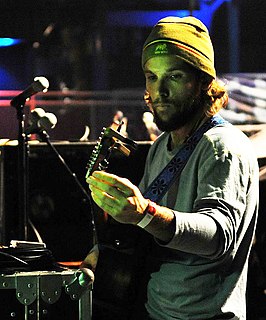A Quote by Jonas Salk
When things get bad enough, then something happens to correct the course. And it's for that reason that I speak about evolution as an error-making and an error-correcting process. And if we can be ever so much better - ever so much slightly better - at error correcting than at error making, then we'll make it.
Related Quotes
Error is a supposition that pleasure and pain, that intelligence, substance, life, are existent in matter. Error is neither Mind nor one of Mind's faculties. Error is the contradiction of Truth. Error is a belief without understanding. Error is unreal because untrue. It is that which stemma to be and is not. If error were true, its truth would be error, and we should have a self-evident absurdity -namely, erroneous truth. Thus we should continue to lose the standard of Truth.
With both people and computers on the job, computer error can be more quickly tracked down and corrected by people and, conversely, human error can be more quickly corrected by computers. What it amounts to is that nothing serious can happen unless human error and computer error take place simultaneously. And that hardly ever happens.
As soon as error is corrected, it is important that the error be forgotten and only the successful attempts be remembered. Errors, mistakes, and humiliations are all necessary steps in the learning process. Once they have served their purpose, they should be forgotten. If we constantly dwell upon the errors, then the error or failure becomes the goal.
The world always makes the assumption that the exposure of an error is identical with the discovery of truth - that error and truth are simply opposite. They are nothing of the sort. What the world turns to, when it has been cured of one error, is usually simply another error, and maybe one worse than the first one.
































